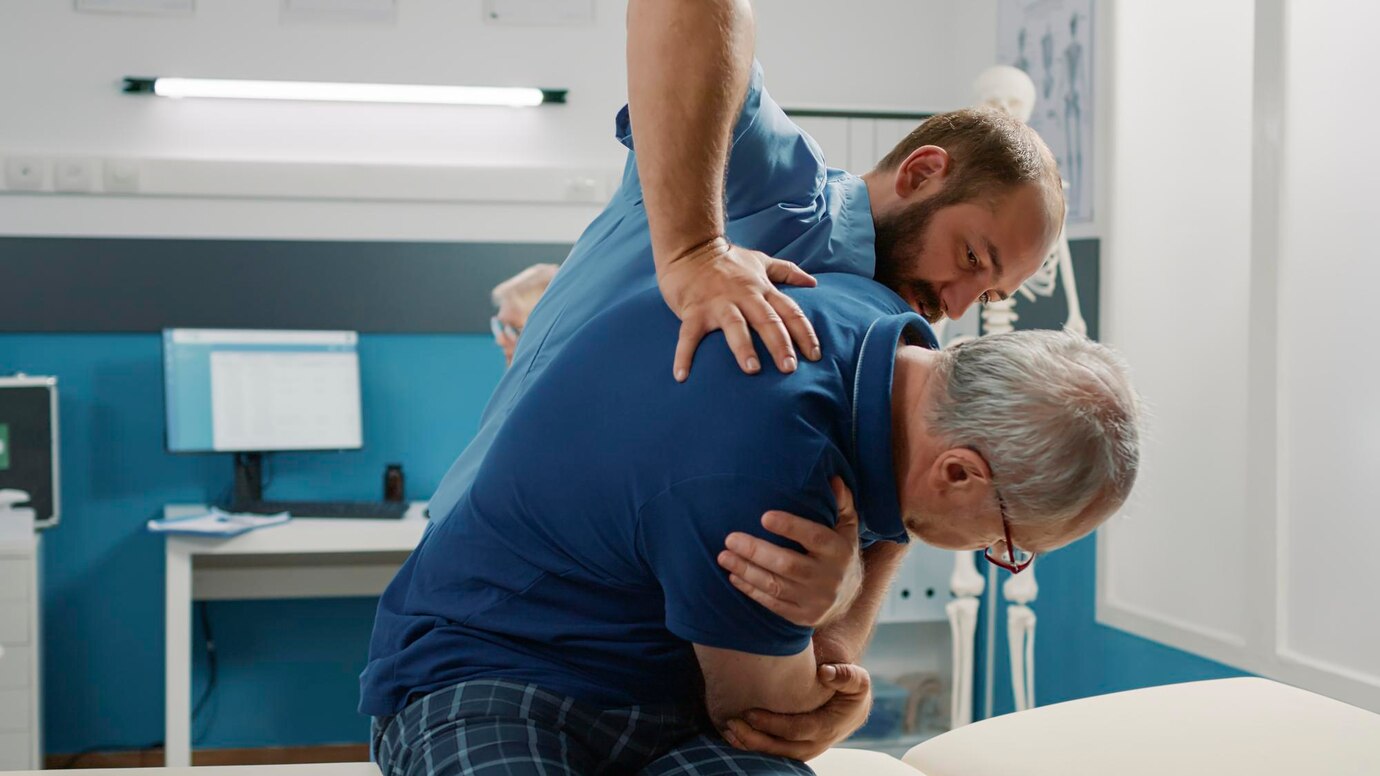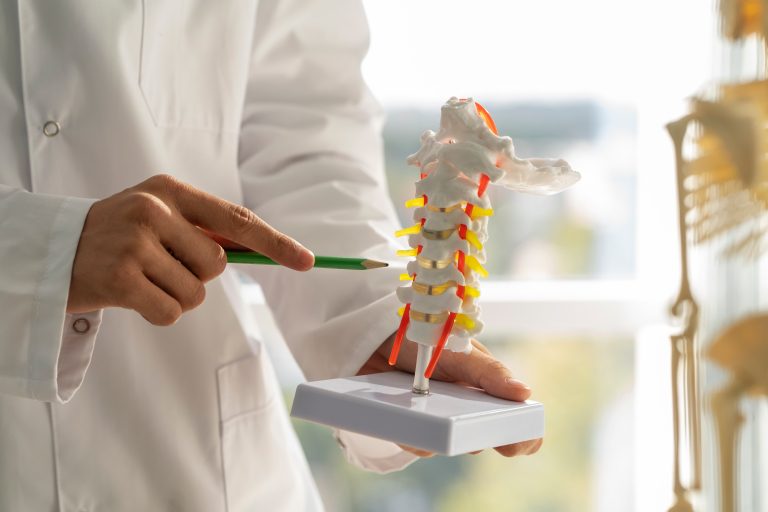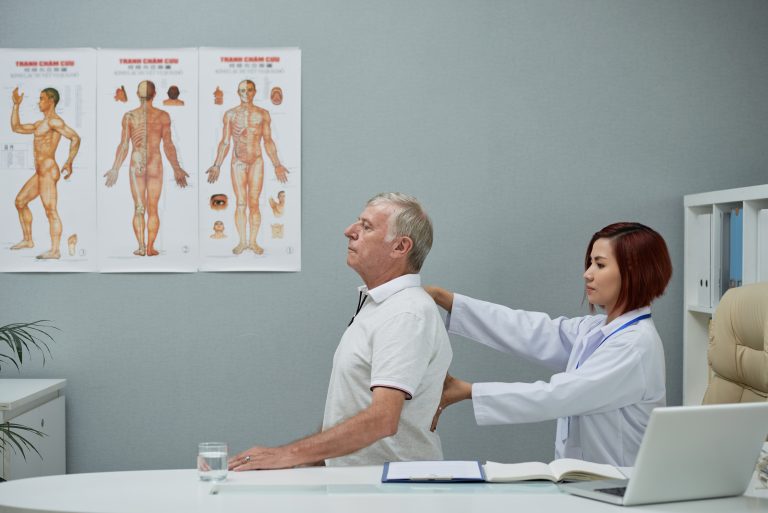If you’re suffering from a herniated disc, bulging disc, or chronic back pain, you may be weighing your treatment options. Two common approaches are spinal decompression therapy and surgery. Both treatments can offer relief, but choosing the best option depends on your condition, goals, and overall health. In this blog, we’ll compare spinal decompression and surgery to help you make an informed decision.
Whether you’re located in Warren, Sterling Heights, Troy, or Roseville, finding the right treatment is crucial for improving your quality of life.
What Is Spinal Decompression Therapy?
Spinal decompression therapy is a non-invasive treatment designed to relieve pressure on the spinal discs. It involves the use of a specialized traction table or device that gently stretches the spine, allowing herniated or bulging discs to return to their proper positions. This treatment helps to improve blood flow, reduce pain, and promote healing in the affected area.
Benefits of Spinal Decompression Therapy:
- Non-Surgical and Drug-Free: One of the biggest advantages is that spinal decompression therapy is non-invasive, meaning there’s no surgery, medication, or lengthy recovery period.
- Relief from Disc Pain: By reducing pressure on the discs, this therapy can alleviate pain caused by herniated or bulging discs, sciatica, and degenerative disc disease.
- Safe and Painless: The procedure is gentle and generally pain-free, making it a viable option for patients who prefer non-surgical solutions.
- Improved Mobility and Function: Many patients experience improved mobility and less stiffness after completing spinal decompression sessions.
For patients in Madison Heights, Clinton Township, or Fraser, spinal decompression therapy offers a non-invasive way to treat disc problems and avoid the risks associated with surgery.
What Is Surgery for Disc Problems?
Surgery is another treatment option for more severe disc issues, such as a herniated disc that compresses a nerve or causes significant pain. Surgery for disc problems often involves procedures like discectomy (removal of part of a damaged disc) or spinal fusion (fusing two vertebrae together). While surgery can offer relief, it is typically considered a last resort.
Benefits of Surgery:
- Effective for Severe Cases: Surgery is often the best option when non-invasive treatments like spinal decompression or physical therapy have failed, or when there’s nerve compression that causes weakness, numbness, or paralysis.
- Immediate Relief: In many cases, surgery can provide immediate relief from pain and improve function when the disc is pressing on a nerve or causing significant discomfort.
- Lasting Results: For certain patients, surgery can offer long-term relief from severe disc problems, especially if the condition has been progressively worsening.
Surgery can be the right choice for patients in Sterling Heights, Roseville, or Detroit who have not found relief through conservative treatments and require a more aggressive intervention.
Spinal Decompression vs. Surgery: A Side-by-Side Comparison
1. Invasiveness
- Spinal Decompression: Non-invasive and requires no incisions or anesthesia. Sessions are typically 20 to 45 minutes long.
- Surgery: Invasive, requiring incisions, anesthesia, and often a hospital stay. Recovery times can vary depending on the type of surgery performed.
2. Recovery Time
- Spinal Decompression: Minimal downtime. Many patients can resume normal activities after a few sessions and experience gradual improvement over several weeks.
- Surgery: Recovery from surgery can take several weeks to months, depending on the complexity of the procedure. Some patients may also require physical therapy to regain strength and mobility.
3. Effectiveness
- Spinal Decompression: Effective for mild to moderate disc problems like herniated or bulging discs. It works best for patients who want to avoid surgery and are looking for a non-invasive solution.
- Surgery: Highly effective for more severe cases, such as when a disc is compressing a nerve or causing significant pain. Surgery is generally recommended when other treatments have failed.
4. Risks and Complications
- Spinal Decompression: Low risk. It’s a safe, gentle procedure with minimal side effects.
- Surgery: Higher risk due to the invasive nature of the procedure. Possible complications include infection, blood clots, nerve damage, or the need for additional surgeries in the future.
5. Cost
- Spinal Decompression: Generally more affordable than surgery and may be covered by insurance, depending on the provider. It’s also less expensive because it doesn’t require hospitalization or extensive follow-up care.
- Surgery: Surgery can be costly, especially if it involves a hospital stay and follow-up rehabilitation. Additionally, it may not be fully covered by insurance, depending on the procedure and your coverage.
Which Treatment Is Right for You?
The decision between spinal decompression therapy and surgery depends on several factors, including the severity of your disc problem, your overall health, and your treatment goals.
When to Consider Spinal Decompression Therapy:
- You have mild to moderate disc issues like herniated discs or degenerative disc disease.
- You want to avoid surgery and prefer a non-invasive treatment option.
- Your symptoms include chronic back pain, sciatica, or limited mobility that hasn’t responded to other therapies.
- You’re looking for a low-risk treatment with minimal downtime.
When to Consider Surgery:
- Your disc problem is severe, such as a large herniation compressing a nerve or causing significant pain and weakness.
- Conservative treatments like spinal decompression, physical therapy, and medications haven’t provided relief.
- You’re experiencing symptoms like numbness, weakness, or loss of bladder or bowel control (which may indicate a medical emergency).
- You’re prepared for a longer recovery period and are willing to accept the risks associated with surgery.
Contact Spinal Recovery Center in Warren, MI
If you’re located in Warren, Sterling Heights, Troy, or surrounding areas and are considering spinal decompression therapy, Spinal Recovery Center offers a comprehensive, non-invasive approach to treating disc problems. Our team of experienced chiropractors specializes in spinal decompression therapy to relieve pain, improve mobility, and avoid surgery when possible.
Our clinic is conveniently located at 12300 E 12 Mile Rd, Warren, MI 48093, and we proudly serve patients from Madison Heights, Roseville, Clinton Township, and beyond.
Contact Us Today
To schedule a consultation or learn more about how spinal decompression therapy can help you, call (586) 573-8100 or visit our website at spinalrecoverycenter.com.




